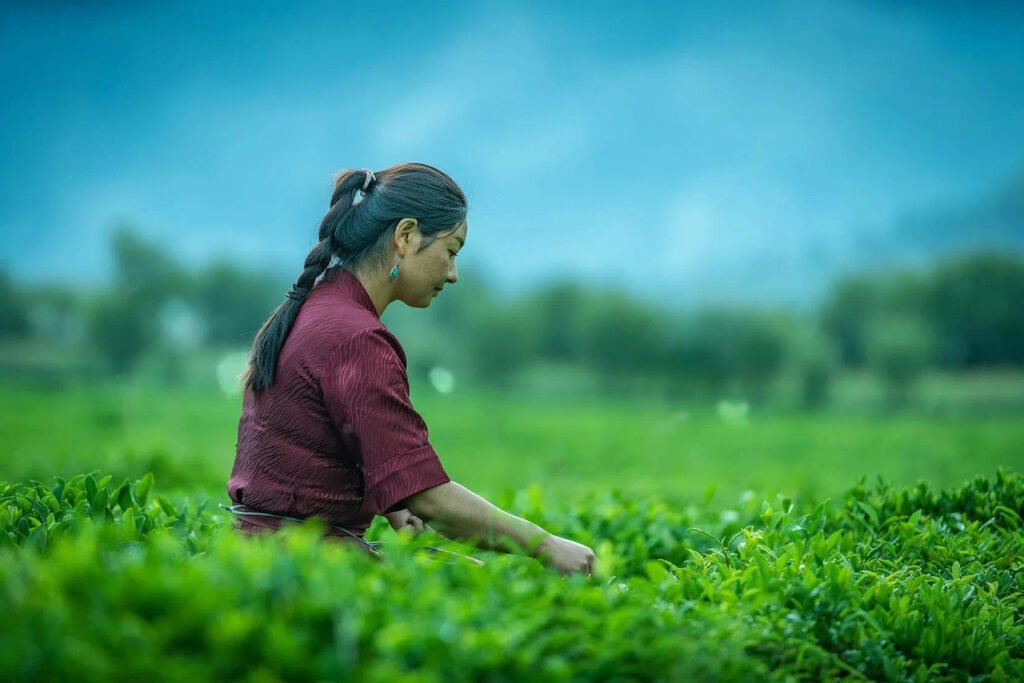Upper Zayü: A Border Township Rich in Natural and Cultural Heritage
Upper Zayü, nestled in the southwest of Zayü County, Tibet, stands as a border township with a vibrant tapestry of ethnic diversity and natural splendor. Home to over 3,000 residents from various ethnic groups including Tibetan, Han, Naxi, Lhoba, and Deng, this township boasts a unique blend of cultures and traditions. Its strategic location bordering India to the south, and neighboring Metok to the west, and Baxoi and Bomê to the north and east, stretches its borderline over 120 kilometers.
A Haven of Biodiversity and Natural Resources
Sitting at an average elevation of 1,900 meters, Upper Zayü enjoys a temperate climate, thanks to its generous rainfall and the nourishing waters of the Azha River, originating from the Azha Glacier. The township is a treasure trove of forestry and mineral resources, with underforest products like matsutake mushrooms, cordyceps, gastrodia elata, fritillaria, notoginseng, coptis, black fungus, and ferns. Its wildlife includes national protected animals such as tigers, leopards, bears, deer, and parrots, while its mineral wealth spans gold, silver, tin, and more.
The dense forests covering 70% of the township host a variety of trees including yew, spruce, sandalwood, and Yunnan pine, alongside economic plants like apples, walnuts, papayas, tung trees, and tea oil trees. Agriculture thrives with crops like wheat, rice, soybeans, peanuts, barley, and buckwheat, complemented by a livestock industry featuring yaks, buffalo, cattle, goats, sheep, and Tibetan pigs.

Travel Tips for Explorers
- Access and Communication: Upper Zayü is 120 kilometers from the county seat, with 11 villages accessible by road and 5 by mule tracks. Satellite phones were introduced in 2003, followed by program-controlled telephones in 2004.
- Power Supply: Electricity reaches eight villages, with Migou Power Station generating 310,000 kWh annually.
- Attractions: Noteworthy sites include the Azha Glacier, Migou Sandalwoods, Shizhongdaqiong Monastery, and handmade wooden bowls. However, note that a significant portion of Upper Zayü’s southern and southwestern territories are currently under Indian occupation.
Lower Zayü: The “Jiangnan” of Tibet
Lower Zayü, another border town in Eastern Tibet, is known for its scenic beauty and abundant resources, earning it the nickname “The Jiangnan of Tibet.” Streets lined with wooden buildings house shops, restaurants, repair shops, hair salons, and hotels, offering a glimpse of urban amenities in a rural setting.
Due to its lower latitude and elevation, coupled with the influence of warm and humid air from the Bay of Bengal, Lower Zayü enjoys a picturesque landscape and a pleasant climate. The region is renowned for its medicinal herbs, fruits, and agricultural products.
Visiting Lower Zayü
- Transport: Located over 70 kilometers from Zayü County town, daily buses are available, or visitors can hire a car in the county town.
- Travel Permits: Visitors need to obtain a border pass from the county Public Security Bureau. Photography is prohibited on the bridge to Lower Zayü.
- Local Purchases: Red cedar wooden bowls and Zayü rice and matsutake mushrooms are affordable. However, engaging with sellers of wild parrots is illegal and should be avoided.
These regions of Zayü County, with their rich natural resources, diverse ecosystems, and cultural heritage, offer a unique glimpse into the life and beauty of Eastern Tibet.
